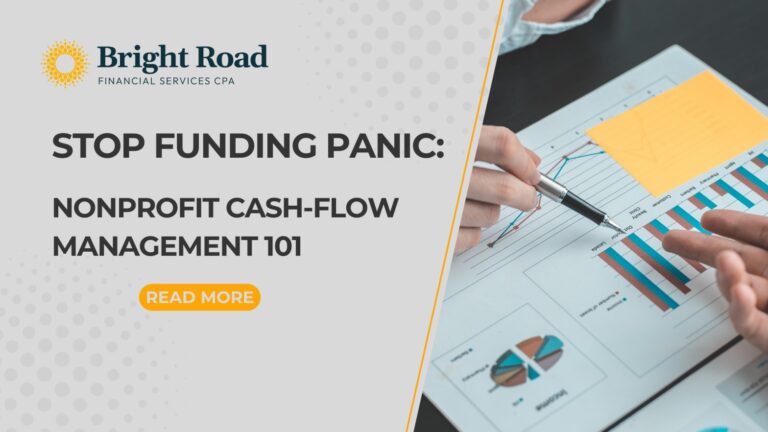7 Financial Red Flags a CPA Can Spot Before They Cost You

When it comes to your finances—whether personal or business—what you don’t know can hurt you. That’s where a Certified Public Accountant (CPA) becomes more than just a tax preparer. They are trained to spot warning signs in your financial landscape long before those issues snowball into expensive problems.
In this article, we’ll walk through 7 key financial red flags a CPA can identify early, giving you the insight you need to protect your money, stay compliant, and make better financial decisions.
1. Unexplained Cash Flow Fluctuations
A sudden dip—or spike—in your cash flow isn’t always a win or a loss. Sometimes it’s a symptom of poor financial controls, accounting errors, or overlooked liabilities. A CPA can dig into your statements to trace the cause and prevent future cash shortages or misuse of funds.
2. Consistent Late Payments or Missed Deadlines
If you’re regularly missing tax deadlines, paying vendors late, or falling behind on invoices, this raises more than just operational concerns. It can also hurt your credit rating, damage relationships, and trigger penalties. CPAs help identify the root causes, such as poor cash management or systemic inefficiencies.
3. Rising Debt-to-Income Ratio
A CPA closely monitors your debt-to-income (DTI) ratio, especially if it trends upward. This red flag often indicates overleveraging, poor budget planning, or unsustainable growth tactics. Catching this early can help you restructure debt or reallocate spending before your creditworthiness is affected.
4. Inconsistent or Inaccurate Financial Reports
Your financial statements tell your business’s story—but what if they’re wrong? Discrepancies in reports or unexplained variances can signal errors in data entry, embezzlement, or outdated accounting practices. A CPA ensures your records are accurate, consistent, and audit-ready.
5. Overreliance on a Single Revenue Stream
Putting all your eggs in one basket is risky. CPAs can identify overreliance on a single client, product, or service—helping you diversify income sources and build financial resilience.
6. Unusual Tax Deductions or IRS Red Flags
Claiming aggressive deductions or failing to document expenses properly can attract IRS scrutiny. A CPA recognizes which deductions are justifiable and which could trigger an audit, ensuring you’re both compliant and strategic during tax season.
7. Inadequate Emergency Reserves or Retirement Planning
Too many individuals and small businesses overlook long-term financial planning. A CPA can assess whether you’re saving enough, investing wisely, and protecting your assets through appropriate reserves and risk management strategies.
Why These Financial Red Flags Matter
Each of these red flags may seem minor in isolation—but they often point to larger, systemic issues. A CPA’s ability to analyze financial patterns, flag inconsistencies, and provide proactive advice can save you thousands of dollars and a lot of stress.
Conclusion
Ignoring small financial issues today can lead to major consequences tomorrow—from cash flow crises to IRS audits or business insolvency. Partnering with a CPA isn’t just about filing taxes; it’s about strategic financial health.
By spotting and addressing red flags early, a CPA helps you make smarter decisions, stay compliant, and keep your financial future secure.
 Ready to simplify your bookkeeping process?
Ready to simplify your bookkeeping process? Contact us today at brightroadcpa.com or call 937-247-6001 to learn more.
Contact us today at brightroadcpa.com or call 937-247-6001 to learn more.







